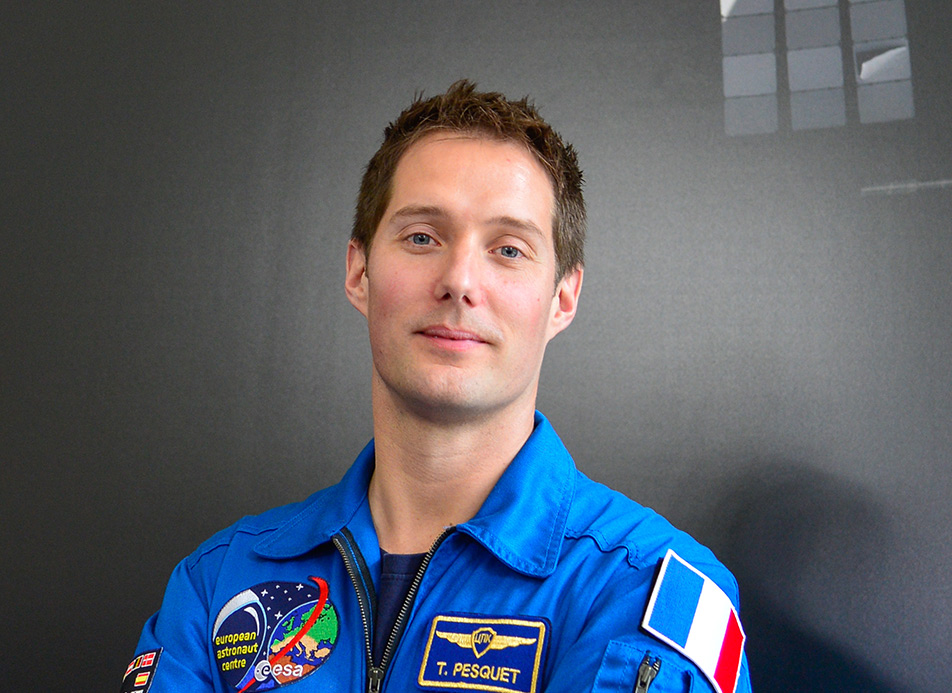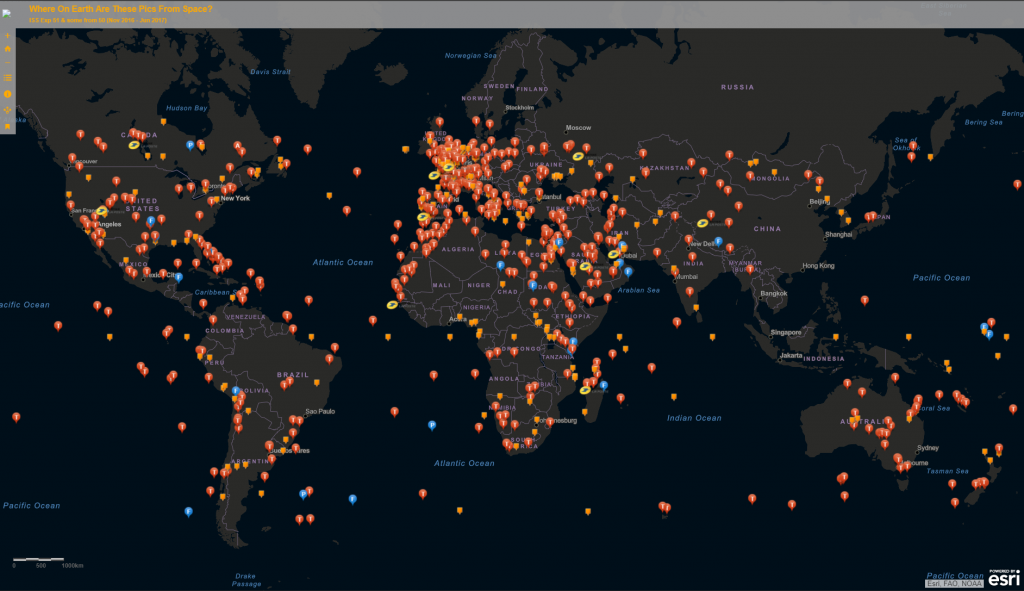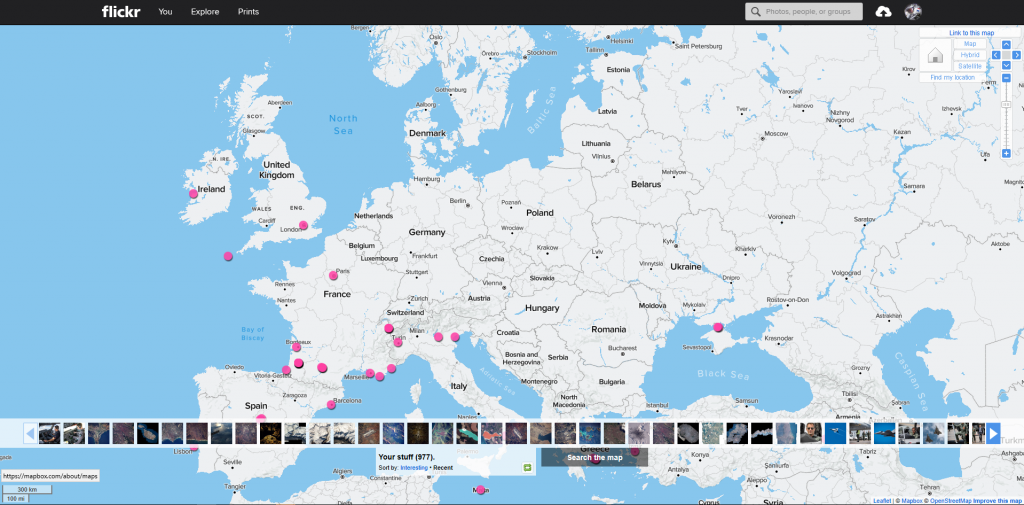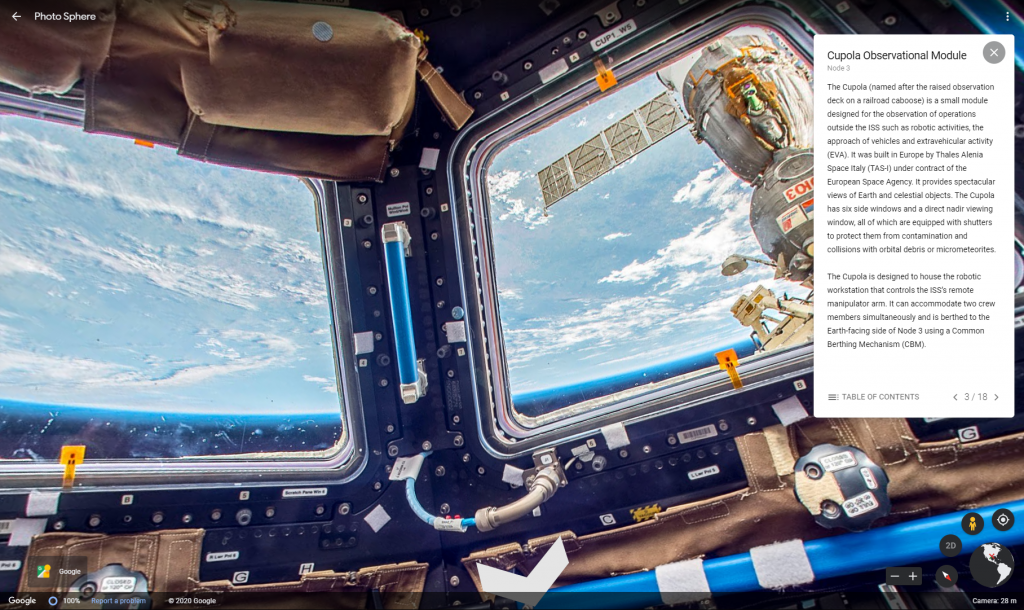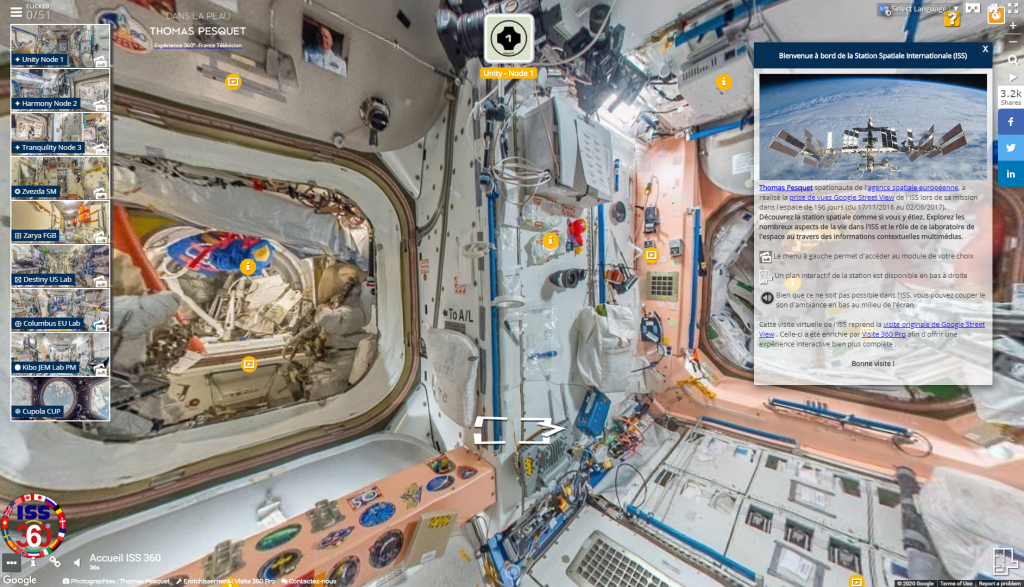ESA astronaut Thomas Pesquet took thousands of pictures of our planet from the International Space Station during his Proxima mission. Over his six months on orbit, he refined his skills and produced many breath-taking shots of cities, landscapes and natural phenomena such as storms and volcanic eruptions. As the Space Station orbits our planet at 28 800 km/h an hour it only takes 90 minutes to do a complete rotation. So by spending just over an hour in Europe’s Cupola observatory with a camera, astronauts can see Earth in daytime and at night snapping pictures across continents to relax after work in the orbiting laboratory.
Thomas took many pictures also from the Russian Zvezda module that has smaller windows but looks down directly at Earth allowing for sharper pictures.
Travelling at such speeds, 400 km above, viewing a world without borders it is no easy feat to recognise where all the landscapes, cities, bright lights and features and a bit of sleuthing is necessary.
You can browse all Thomas’ pictures on a map of the world, tagged to their location by the community of ‘geo-taggers’ on this wonderful map:
The high resolution images can be downloaded on Thomas’ Flickr album and these are now also geo-located, thanks often to the work done by enthusiasts on social media! The map browsing function is not ideal, but searching for a city or place will bring up his Proxima pictures of that area.
Be warned you can easily spend hours browsing and searching pictures of our planet seen through an astronauts’ eyes!
In a similar vein – but different – Thomas also took many pictures of the International Space Station from inside for Google Street View. You can float around the Space Station, or as it was in 2017, here:
Professional Google Street View photographer François Houte enhanced the experience with more information and audio for the French-speaking audience, well worth the upgrade!


